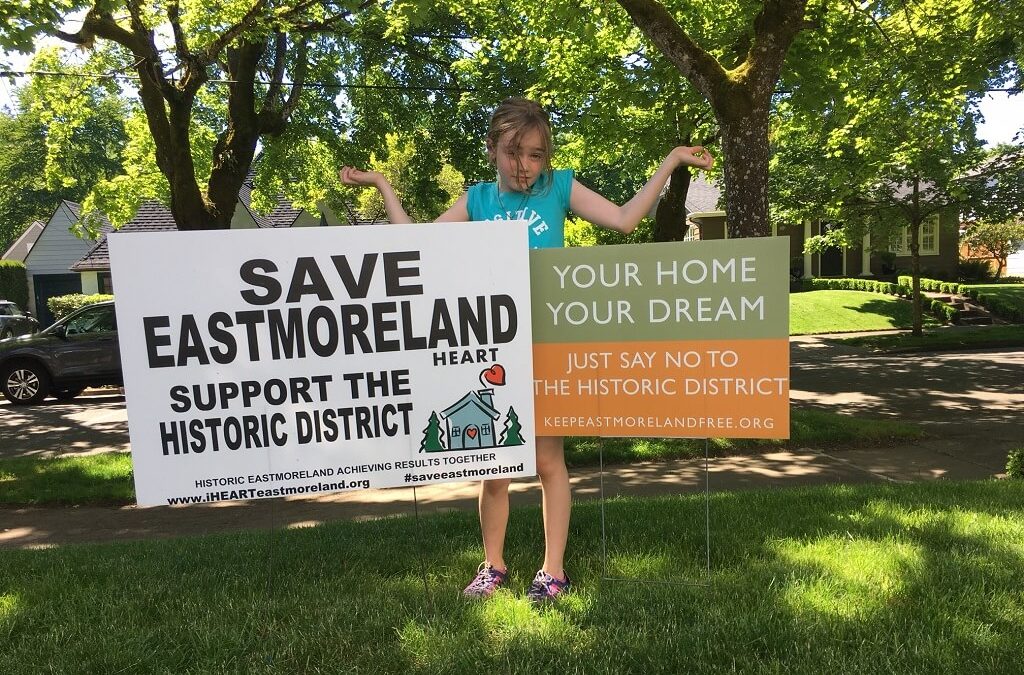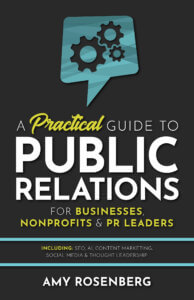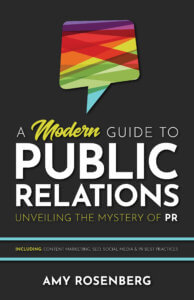Home-Grown Home Builder Weighs in on Historic District
As I sat down to interview Randy Sebastian, owner of Renaissance Homes, about the proposed historic district (HD) in Eastmoreland, he recalls humble beginnings leading to his perch as the number one home builder in Portland and Lake Oswego. Before building his first set of homes in the 80’s he was operating a food truck selling the perfect concoction of shaved ice, hot dogs and coffee. He later moved on to home building as he thought working outside, without the confines of a dreary office, represented the ultimate freedom.
After learning a little bit about Renaissance Homes and how Randy managed to stay in the game after creating a new company resulting from a Chapter 11 during the housing bubble, we turned to the drawbacks of the HD.
Since I am kind of running out of time (and want to enjoy what’s left of my Friday night!) I’m going to have to summarize the main HD drawbacks from Randy’s point-of-view. I thought I’d better get this posted before tomorrow since an easy way to Object to the HD is happening tomorrow (this Saturday) at Eastmoreland’s annual neighborhood garage sale. Notaries will be on-hand helping you Object to the HD (bring your ID) tomorrow at the Cooney Residence on the corner of Woodstock and Reed College Place from roughly 11 a.m. – 1 p.m.
First of all, I’ll begin by stating that Randy said he’s only demolished two homes in the part of Eastmoreland that would be within the HD. Always entertaining, he relayed interesting stories about those two separate situations. I mentioned he’d need to represent all developers in the interview because it’s not just his company doing the demolitions. He’s fine doing that but said that there really haven’t been very many demolitions in Eastmoreland proper. This is because most of the homes are well-maintained and tearing those down doesn’t pencil out for many developers.
He says developers are looking for deals in which the land is more valuable than the home that sits on top of it. There aren’t too many of those in Eastmoreland. It’s generally due to poor maintenance that the land would become more valuable than the home. The damp Pacific Northwest makes it easy to let a home get away from you. A home riddled with mold and mildew, combined with an outdated floor plan, will go down in value. But in-migration to the state and Portland’s increasing popularity mean that our land values can only rise. Especially on a double lot!
This is where Randy brings in the old lady example, which I believe is valid. Let’s say an older widow hasn’t been able to maintain her house, creating a tear-down situation because mold and other issues make it too expensive to re-do the home. A developer will pay more for this type of home than the average potential buyer because of the land sitting underneath it. The insurmountable issues make the home too expensive for the flipper to re-do. While the new family is either overwhelmed by the work the home would require or finding out they can’t afford it when factoring in the remodeling costs. Or worst case scenario for the young family: they happily submit a bid for the home, only to be let down discovering they can’t get the mortgage because the home needs too much (this is a real concern, I remember this happening even in the good old days of selling real estate when banks would lend mortgages to your dog).
Here’s Randy’s main argument: It’s not fair for us to put something into place that would ultimately ensure that the little old lady made less money when trying to cash out on what’s likely her largest investment. The developers would pay her the most money for her house and they won’t even bother looking for opportunities within an HD.
Randy warns that if we put the HD into place all of us will feel the affects in our property’s resale value. Like it or not, we’re all probably going to sell our homes one day so we have to think about our future buyers. Whether or not they are developers, many buyers will not want to live in an HD because of the perceived restrictions it might bring to future remodeling projects. Real estate brokers warn that restrictions decrease your buyer pool. Randy says that even if we, as sellers, know that the HD process is easy (which he laughs about as he’s not too sure it would be) and the fees aren’t too exorbitant, many buyers could still be scared away.
I can’t remember if it was off or on-air but at some point in the conversation Randy said that real deals can be found in Irvington, not necessarily in the homes that are completely “done” but in the fixer-uppers because you wouldn’t be competing with any of the flippers nor developers. This sounds great to potential buyers, but how do you think the home sellers in Irvington feel about this?
This is Episode 6 of The Eastmoreland Project, the first series of StreetTalk, a podcast about Portland’s ever-changing communal landscape.









